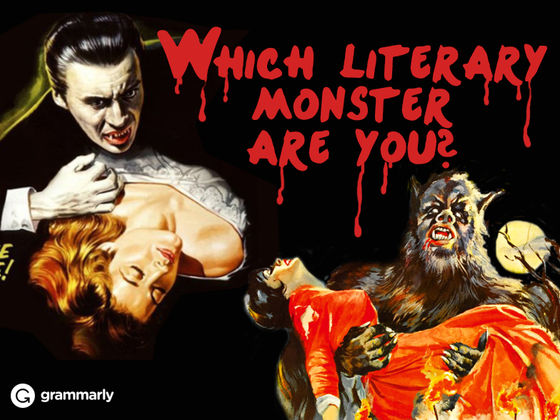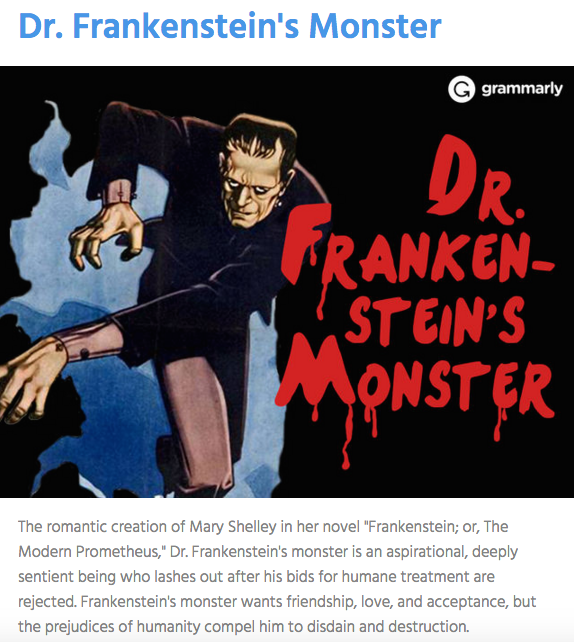by Naomi L. | November 18, 2015 | Blog, Creative Writing |
When it comes to seeking inspiration for your fictional characters, there’s no better place to find it than in the people you know in real life (a point I’ve already made in another post I wrote last year). Such was the case of many famous authors, whose characters were inspired by the real people in their lives. Writers are often motivated by such figures as teachers, close friends, and comrades-in-arms, and sometimes these people make enough of a lasting impression to earn a full fictional counterpart in a book.
So for a little more inspiration heading into the second half of your NaNoWriMo journey, here’s an infographic put together by Fresh Essays highlighting the most interesting examples of well-known fictional characters based on real people. Enjoy!

Are any of your characters based on people you know in real life? What are your favorite examples of characters based on real people?
Today’s creative writing post is brought to you by Fresh Essays, a professional custom essay writing service. For more information, visit http://www.freshessays.com. Thanks for reading! Happy writing!
by Naomi L. | November 16, 2015 | Blog, Word of the Week |
Word: intrepid
Pronunciation: in-TRE-pid
Part of Speech: adjective
Definition: fearless; adventurous
Source: Oxford Dictionaries
Fred: [singing] Six intrepid friends led by Fred, their leader, Fred! Fred’s Angels! Mm-mm-mm. Fred’s Angels! Mm-mm-mm. Harnessing the power of the sun with the ancient amulet they found in the attic. Mm-mm-mm. The amulet is green. Mm-mm-mm. It’s probably an emerald. Mm–
Wasabi: Fred, I will laser-hand you in the face!
– Big Hero 6 (2014)
What’s an adventure story without a fearless hero? For writers who like to include lots of action in their stories, it’s always good to know at least a handful of adjectives to describe the brave characters willing to face it. One of my favorites, “intrepid” is a word I’ve come across several times in adventure fiction, the most recent example being in the 2014 Disney movie Big Hero 6, when Fred(zilla) improvises a theme song while he and his friends courageously embark on their first adventure as superheroes. Despite eliciting a hilarious reaction from an annoyed Wasabi, Fred is right to refer to their group as “intrepid”, for to face a mysterious microbot-controlling villain in a kabuki mask takes nothing short of guts!
An “intrepid” person is someone who’s adventurous and fearless. The word arose in the late 17th century and traces back through the French adjective intrépide to the Latin adjective intrepidus, meaning “fearless”. This adjective comprises the particle in “not” and the adjective trepidus “nervous”.
It’s worth noting that “intrepid” is often played to rhetorical or humorous effect (note the example above). True enough, I’ve probably heard it just as frequently in the serious sense of brave adventurers as in the humorous sense of wannabe heroes. Whether your characters really are courageous thrill seekers or simply want to prove they aren’t cowards, “intrepid” is a great word to describe anyone in your stories who’s always ready to jump into the action!
What are your thoughts on this word? Any suggestions for future “Word of the Week” featured words?
by Naomi L. | November 13, 2015 | J.C. Wolfe's Writing, Poetry |
Violence and danger, they faced
Every day as they defended their homeland.
True of heart and strong of spirit, they stand for
Every citizen and the fight for the
Right to freedom and opportunity.
America’s brave heroes, thank you!
Never will we forget your invaluable
Service to our country!
Thank you to our troops for your never-ending service to our beloved nation! Happy (belated) Veterans Day! May you all have a blessed weekend!
by Naomi L. | November 11, 2015 | Blog, Creative Writing |
Yes, I know Halloween has come and gone, but it’s never too late to have some fun with a monster quiz, right? A couple of weeks ago, Grammarly shared a Halloween-themed quiz: Which Literary Monster Are You? While you’re working on that 50,000-word novel for NaNoWriMo, why not take a break to find out which famous monster from literature fits your personality? It may even inspire you to write some horror fiction of your own! Have fun!

Here’s my inner literary monster, who just so happens to be one of my favorites: Dr. Frankenstein’s monster! Seems fitting for me, as Frankenstein’s creation is an emotional being who is misunderstood by the people he encounters. That is, after all, one of the reasons I became a writer!

Who’s your literary monster? Feel free to share your result in the comments!
Today’s creative writing post is brought to you by Grammarly, the World’s Best Grammar Checker. For more information on Grammarly, visit https://www.grammarly.com/grammar-check. Thanks for reading! Happy writing!
by Naomi L. | November 9, 2015 | Blog, Word of the Week |
Word: cumbersome
Pronunciation: KƏM-bər-səm
Part of Speech: adjective
Definition: large or heavy and therefore difficult to carry or use; unwieldy
Source: Oxford Dictionaries
This week’s vocabulary word is a good one to define some of the obstacles we face in life. Every now and then, you may find you need to move something large and heavy or face a situation that sets you back, and it’s expected that fictional characters must face the same trials. You could say that such obstacles are “cumbersome”: they may slow you down, but they don’t necessarily have to stop you from achieving success!
A “cumbersome” object is difficult to carry or use due to being too large and/or heavy. The word arose in late Middle English in the sense “difficult to get through” and stems from the verb “encumber”, meaning “restrict or burden (someone or something) in such a way that free action or movement is difficult”. This verb comes from the Old French verb encombrer “to block up”, which comprises the prefix en “in” and the verb combrer “to hinder”.
As noted above, while “cumbersome” primarily refers to concrete objects, it can also be used to describe abstract concepts, as it has the sub-definition “slow or complicated and therefore inefficient”. Based on the contexts in which I’ve read it, I believe this word applies best to obstacles that hinder but don’t completely halt progress. If the conflicts in your stories often slow your characters down, “cumbersome” may be a good word to define the obstacles in their way! Good luck!
What are your thoughts on this word? Any suggestions for future “Word of the Week” featured words?





Recent Comments